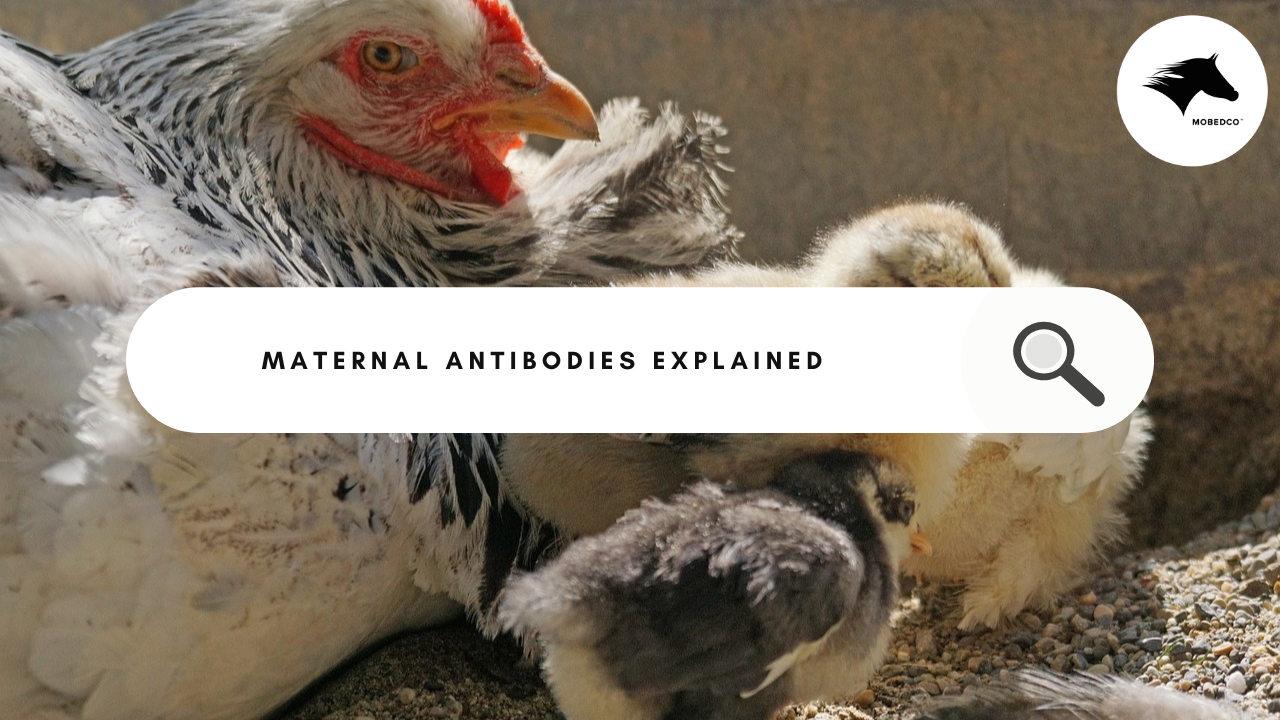
ANNOUNCEMENT
Maternal Antibody Transfer to Chicks: Key Influencing Factors

Maternal Antibody Transfer to Chicks: Key Influencing Factors
The transfer of maternal immunity to chicks through maternal antibodies is a vital protective mechanism during the initial weeks of life. These antibodies, passed via the egg yolk, play an essential role in reducing mortality rates and susceptibility to various diseases among chicks. Understanding the rate of antibody transfer and the factors influencing it is crucial for managing breeder flocks effectively and ensuring the health of the chicks.
Antibody Transfer Rate
The antibody transfer rate is a measure of the percentage of maternal antibody titer that is successfully transmitted to the chick through the egg yolk. This rate serves as a critical indicator of the efficacy of maternal immunity transfer.
Factors Affecting Antibody Transfer Rate
- Maternal Antibody Titer
- The concentration of antibodies in hens directly influences the quantity transferred to the chicks. Higher maternal antibody titers result in a greater transfer of antibodies, while suboptimal titers lead to lower transfer rates.
- Age of the Hens
- Younger Hens: Typically exhibit higher antibody titers and superior yolk quality, leading to more efficient antibody transfer.
- Older Hens: Experience a decline in both yolk quality and antibody titers, which diminishes the efficiency of antibody transfer.
- Production Stage (Laying Period)
- Early Production: Antibody transfer rates are higher due to recent vaccinations and elevated maternal antibody titers.
- Peak Production: Metabolic stress can cause a decrease in antibody titers, reducing the transfer rate.
- Post-Peak: Both yolk quality and antibody titers tend to decline, further diminishing the efficiency of transfer.
- Egg Quality
- Standard-sized eggs with high-quality yolk ensure better antibody transfer. Conversely, small or abnormal eggs often contain fewer antibodies, resulting in lower transfer rates.
- Vaccination Management
- Proper and timely vaccinations increase maternal antibody titers, thereby enhancing the transfer rate. Administering booster shots during later stages of production can help maintain effective antibody levels.
- Nutritional Factors
- The inclusion of antioxidants such as vitamins E and A, and selenium, in the hens’ diet can improve yolk quality and enhance antibody transfer. Nutritional deficiencies, particularly in protein and essential amino acids, can negatively impact yolk quality and reduce the transfer rate.
- Health Status of the Hens
- Infections or severe stress can adversely affect antibody production and yolk quality, thereby reducing the transfer rate.
In conclusion, the rate of antibody transfer is influenced by a multitude of factors, including maternal antibody levels, the age of the hens, production stage, egg quality, vaccination management, nutrition, and the overall health status of the hens. Effective management of these factors is essential to optimizing antibody transfer and ensuring that chicks are well-protected during their early, vulnerable stages of life. By addressing these key factors, breeders can significantly enhance the health and vitality of their flocks.





